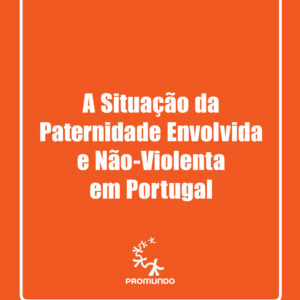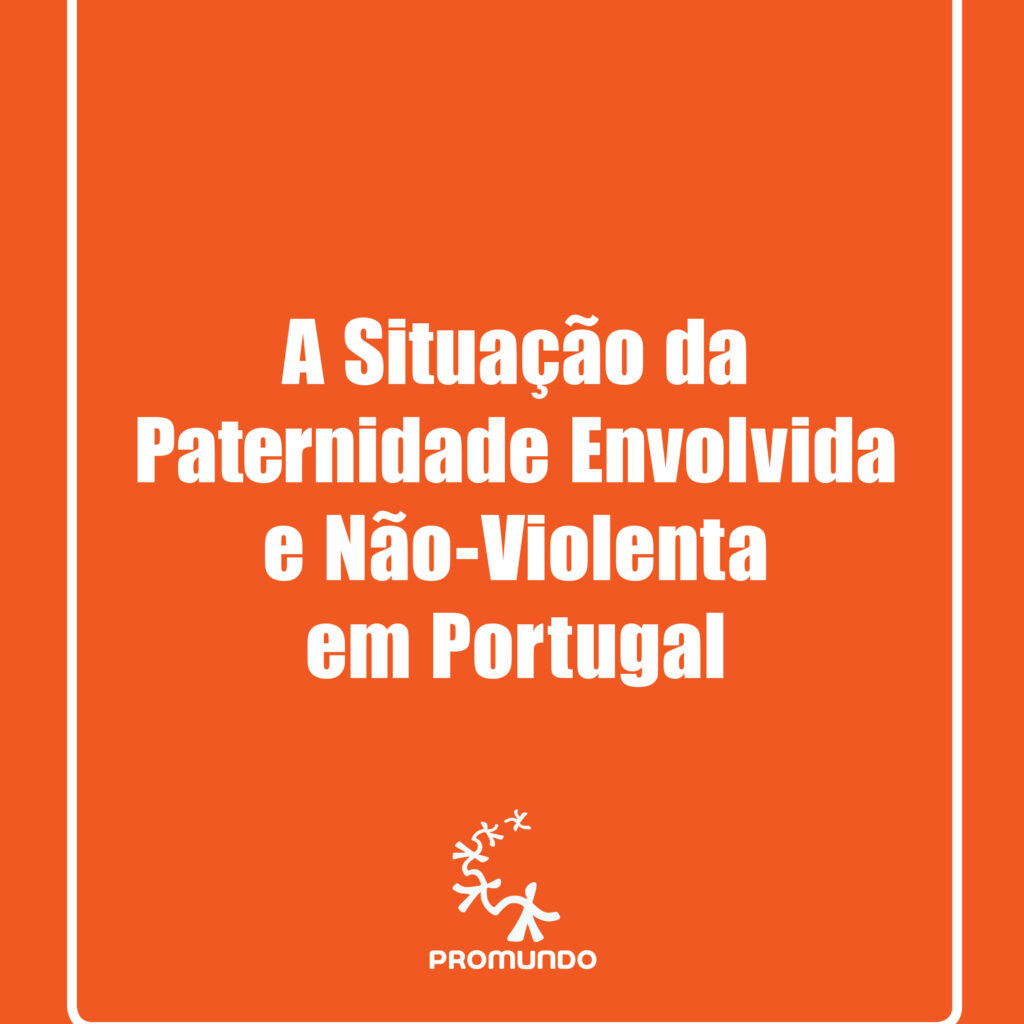By Alexandre de Sousa Carvalho and Sofia José Santos
 Equimundo-Europe, in collaboration with the Centre for Social Studies of the University of Coimbra and the Coimbra School of Nursing, launched its first report on the State of Involved and Nonviolent Fatherhood in Portugal at “Big Plans for Equality,” the fourth meeting of health professionals hosted by the Association for Family Planning in Lisbon on May 31.
Equimundo-Europe, in collaboration with the Centre for Social Studies of the University of Coimbra and the Coimbra School of Nursing, launched its first report on the State of Involved and Nonviolent Fatherhood in Portugal at “Big Plans for Equality,” the fourth meeting of health professionals hosted by the Association for Family Planning in Lisbon on May 31.
Involving men in fatherhood and caregiving has enormous potential to transform the lives of men and women in Portugal and around the world. With this in mind, the report presents the current state of fatherhood in Portugal and provides recommendations for policymakers, decision-makers, employers, health professionals, and educators on how to further engage men in equitable, nonviolent caregiving.
The report reveals several positive trends in Portugal:
- In terms of overall progress toward gender equality, Portugal is on par with many other European Union (EU) countries and has one of the EU’s most progressive paternity leave policies in terms of both length and compensation;
- The number of fathers who took non-compulsory paternity leave in Portugal increased by 37% between 2005 and 2013;
- Responsibility for contraception and family planning has become increasingly more gender-equitable in Portugal.
However:
- On average, women in Portugal continue to spend almost five hours per day on domestic work and caregiving, while men spend just over one hour;
- Men continue to be the main perpetrators of violence against women (81.9% in 2014);
- Unsupportive social norms, structures, and practices of employers and of education and health services are, in general, the key obstacles to involved and nonviolent fatherhood.
As such:
- Employers should receive information about family-friendly employment practices, which emphasizes that workers are more productive when they are happy and when they have a desirable work-life balance;
- Government entities and the health and education sectors should create national and international action plans to prevent gender-based violence, promote involved and nonviolent fatherhood, and encourage men and boys to share care work and housework equally with women and girls.
State of Involved and Nonviolent Fatherhood in Portugal follows the launch of State of the World’s Fathers, a MenCare advocacy publication, and other regional and national reports on the subject. Along with presenting the state of men’s contributions to caregiving in Portugal, the report includes two additional sections: (1) a section on best practices for employers, which aims to inspire new policies to support involved parenting; and (2) a section comprised of detachable postcards with messages and data on involved and nonviolent fatherhood. These postcards also serve as mini-posters and bookmarks, thus providing an opportunity to share the report’s findings more broadly.
The State of Involved and Nonviolent Fatherhood in Portugal report can be accessed in Portuguese here.
